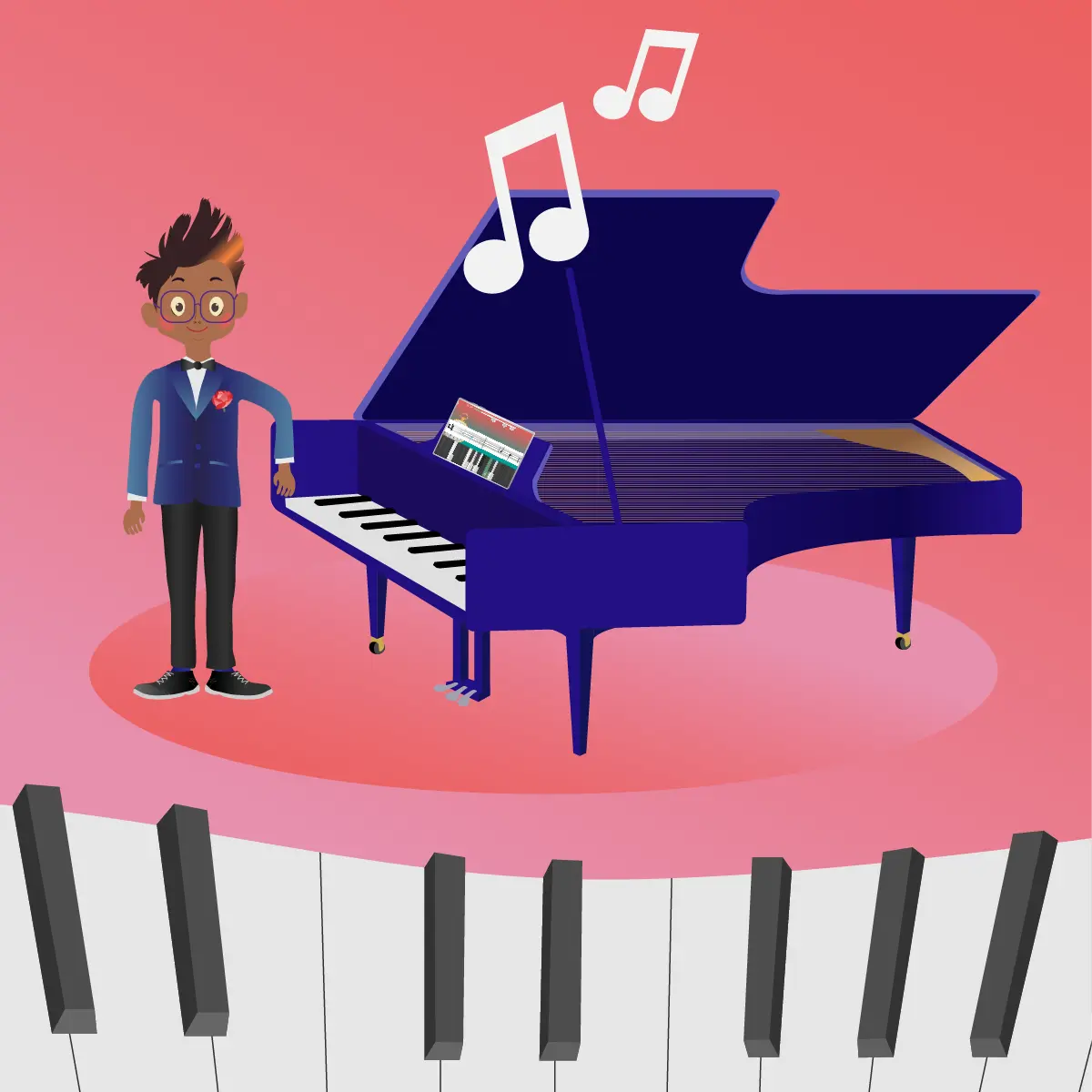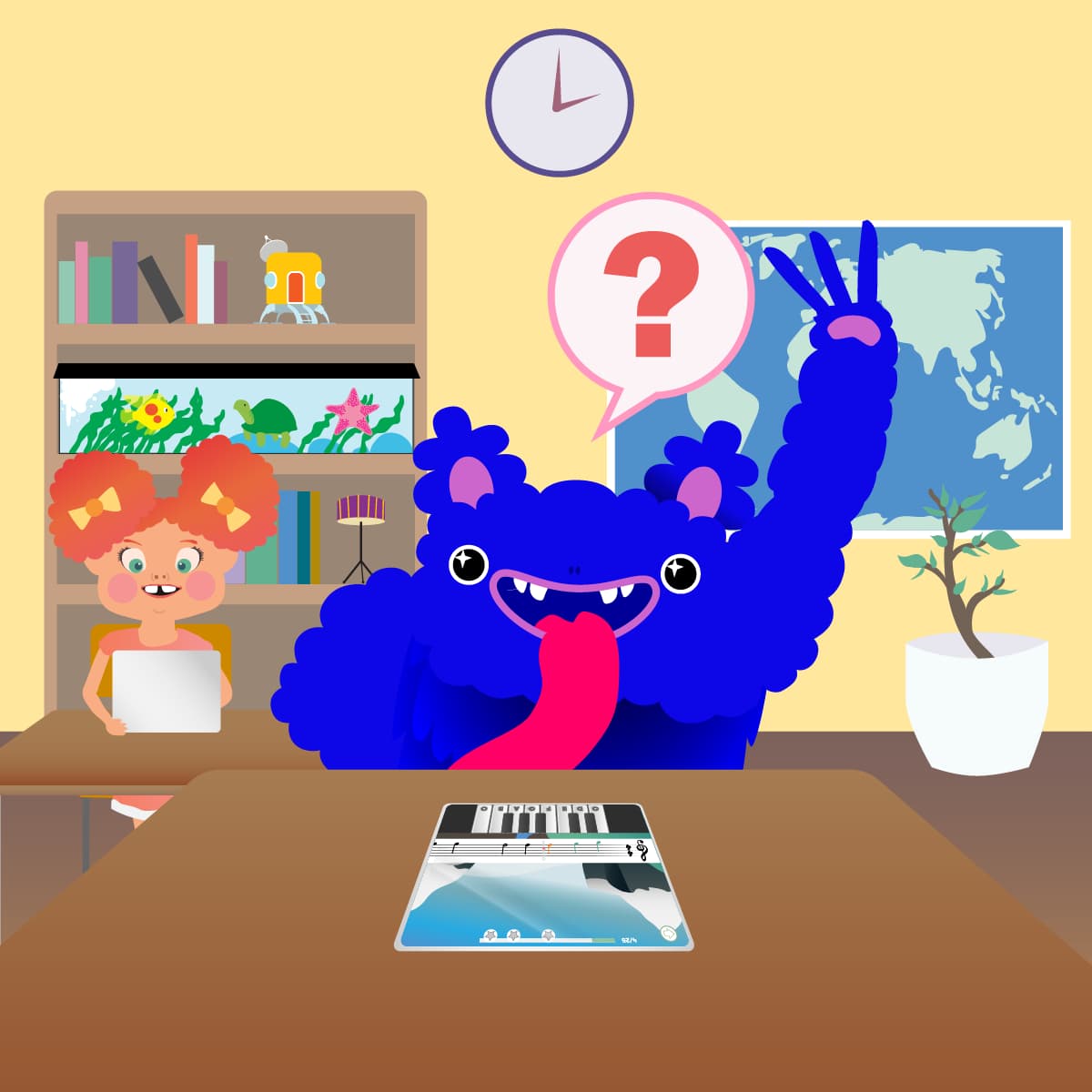by Jonathan Duffy, Arctic Meta
We’ve all got fond memories that are attached to music from our childhood. Perhaps there was a song on the radio all the time during the first family vacation you can remember. Maybe your parents had a favourite album that brings back fond memories when you hear it now. Perhaps you had a relative that would always replace lyrics to songs when singing them; I was fifteen before I realised the lyrics were, ‘It’s a long way to the top if you want to rock and roll,’ and not ‘It’s a long way to the shop if you want a sausage roll.’
Music plays a massive role in our lives from the moment we are born but have you ever wondered what it does to our brains? Does music help us to learn and develop? Read on to find out all you need to know about just what music does to our brains as we grow.
How Does Music Help Kids Learn?

There are many ways in which music can help accelerate the learning journey for kids. The theory is that any musical experiences a child can have in their early years will stimulate their brain development.
A study in 2016 at the Brain Creativity Institute of the University of Southern California found that areas of the brain responsible for language acquisition, reading skills and other vital cognitive functions benefit from the introduction of musical stimulus.
It seems that music is a key that gives kids an advantage on the road to learning success. It helps with many milestones and skills like motor, social, language, comprehension and intellect.
The Benefits of Music Education on Kids Development
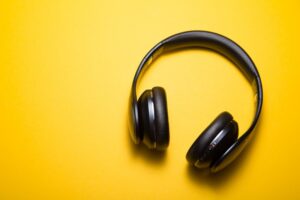
If we delve further into some of the things listed above, we can get further insight into the specific benefits of musical education on the development of a child.
Language Development

The most crucial period of time for language development in children is between the ages of two and nine.
This is the time where they’re making sense of the sounds around them. They listen to them and eventually assign meaning which becomes words, and in turn, becomes their available vocabulary.
By the time a child has reached the age of ten, they have a firm grasp on complex grammar, tenses and pronunciation, all based on noticing the sounds of their environment. Of course, school plays a role in this, but most kids can effectively use the simple past and future tenses before starting school.

During these formative language years, children who grow up in an environment abundant in music seem to have a significant advantage when it comes to understanding and decoding language. This isn’t just some new-age sounding stuff someone might use to try and push a harmonica on you in a strip mall; it’s actually been studied and documented.
The areas in the brain that are known to assist in the processing and development of language are given a boost when musical training is undertaken. The two things are also mutually beneficial. Over time, the development of language also helps the brain to process and understand music.
Simply put, music helps you learn to speak, and learning to speak helps you to learn music. It’s the circle of life… cue the Lion King Soundtrack.
Increased IQ

If you could do something to try to give your child the highest possible chance of being smarter, you would. It’s why we read to them, explain things, and obsess about the educational content of Peppa Pig and her odd sideways face.
A study in 2004 found a correlation between musical education and the increase of a child’s IQ.
The study at the University of Toronto gave kids weekly voice and piano lessons over the course of nine months.
The kids’ IQs were tested before and after the experiment, and it was found that, on average, they gained three IQ points in this short space of time.
Brain Development
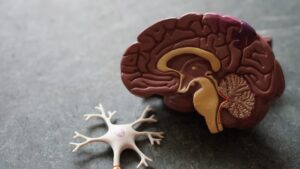
The human brain is a fascinating piece of anatomy. By the age of four, our brains possess the power to understand language, draw and recognise shapes and even operate tools like a tricycle. This all has to do with the brain discovering what it’s capable of.
It’s been theorised that musical education can somewhat accelerate the development of a healthy brain. The main principle behind this theory is that you need to use more of your brain all at once when you play an instrument.
One study at Harvard Medical School found that students who received 15 months of musical instruction were able to distinguish sounds better and had better motor skills than their un-musically trained peers.
If you want the simplest example of this, Albert Einstein apparently played the violin beautifully.
Spatial and Temporal Skills Development

Spatial and temporal skills are something we develop naturally because of our relationship with the environment around us. This part of development is where we begin to understand things like how much space we take up, how high can I jump on the trampoline, and sometimes; unfortunately, we misjudge if our head can fit in the bannisters on the stairs.
As we get older, spatial and temporal skills develop even further and eventually help us to visualise things better for complex problem-solving.
Several studies have shown a link between learning a musical instrument and developing better spatial-temporal skills.
Those with a highly developed sense of these skills tend to excel in engineering, math, gaming, art, architecture and many more industries.
Improved Academic Performance

Most of us tend to form a picture in our head of a student when we hear that they play an instrument. Straight away, we assume they must get decent grades, are good at finishing their homework and must be able to organise themselves because that’s what it takes to dedicate time to a demanding extracurricular activity.
This blind assumption we tend to have isn’t that far from the truth. Students who have regular musical instruction tend to perform better academically than those who don’t.
A study in 2007 at the University of Kansas found that when a student attends a school with a good music program, they usually score about 20% higher on standardised tests. This finding was regardless of their socioeconomic background.
The leading theory behind this is that when a school has motivated artistic teachers in programs like music and performing arts, there tends to be a knock-on effect.
The level of motivation among the faculty seems to rise as a result.
Music has also been found to improve concentration and basic memory. When a student has a formal musical education, they’re normally pretty good at remembering information.
Understanding Maths

Contrary to their appearances, in their written forms, music and math are actually quite similar. There are quite a number of elements of music theory that completely transpose over to mathematics.
When a child is learning rhythm, they are actually learning a fundamental mathematical principle. They are also learning ratios, proportions and fractions.
Music is a great artistic way of getting their heads around this.
Developing Social Skills

In an age where we are obsessed with Netflix murder documentaries, I think everyone is super concerned with what we can do to make sure our kids have decent social skills.
All jokes aside, music is a great way to develop and maintain good social skills with kids.
For a start, music is often played with other people. To successfully play in a group, kids need to learn how to work together and understand teamwork.
When a group is working towards a concert or on nailing a song, they understand the benefit a group has on working towards a common goal.
To put it simply, kids who participate in music understand themselves and others better. They work better in group situations and experience fewer problems as a result of underdeveloped social skills.
Developing Self-Expression

We all remember what it’s like to be younger; there are so many feelings that it’s tough to find a way to express them. Music can help facilitate these feelings.
We’ve all seen Hollywood films where an angsty teen spends all their time fuelling their emotions into playing the guitar alone in their room.
Of course, this is an exaggeration, but there’s a thread of truth and a lot of benefit to this.
Playing a musical instrument is a great way to relieve stress, but it can also help kids to connect with and manage their emotions by giving them an easy method to express them.
Boosting Self-Confidence

Practising a musical instrument teaches kids the value of commitment.
Also, it allows them to see how far they have progressed, which in turn can help improve their self-esteem.
Music also encourages kids to take risks which can help them make leaps and bounds in reaching their full potential.
Reducing Anxiety Level
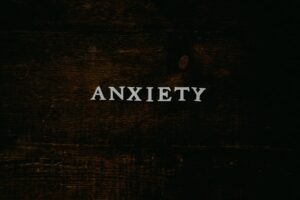
At times of extreme anxiety, it can be helpful to have something to devote your focus to.
It enables you the space and time to welcome a bit of a distraction from the anxiety, but it also helps you to learn that with space, time and energy, it’s possible to move through that feeling and calm your mind.
Toddlers and Music

Anyone who has ever seen a toddler around music knows that they are probably the most receptive audience in the world. It doesn’t really matter what the vibe is; if it’s on and ‘poppin’, a toddler will get down to it like you’ve never seen anyone move in their life.
A big draw point for toddlers with music is consistency and repetition; this helps them learn new language and memorise things.
It’s also great to encourage toddlers to clap along to their favourite songs to discover rhythm. You can also alter words in some songs they know to see if they notice, or encourage them to do the same; it helps them learn about timing and syllables.
Preschool Children and Music
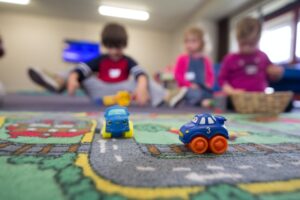
Once kids are at preschool age, they’re pretty happy just to sing wherever and whenever.
In their own minds, they’re the next Katy Perry or Shawn Mendes (although to us, they’re just singing about the wheels on the bus).
They haven’t yet developed the self-consciousness that we have, which stops us from ever performing karaoke until we’re a few beers deep and it’s 2am. For kids, ‘They got the eye of the tiger,’ and you’re gonna hear them roar.
Generally, preschool children like songs that have easy to hear lyrics.
They love things that are inherently silly just for the sake of it, but they’re also connoisseurs of pop music.
Chances are, they will groove to something on the car radio just because it has a beat they like. It doesn’t mean they subconsciously know what ‘Call me by your name’ by Lil NasX is about; they just know it’s got a good rhythm.
School Children and Music
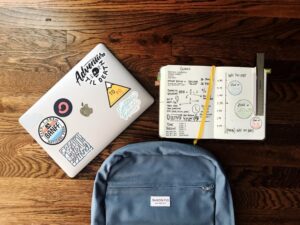
School kids love songs that involve remembering pieces of information or songs that allow them to show off what they know.
Things like counting, spelling and sequences of events rate pretty high in music with school age children.
This is also the age where they may start showing particular tastes in music, or at least get addicted to the soundtrack of their favourite movie, which is probably still Frozen, but we’ll let that go.
Teenagers and Music

There is no other medium or concept that defines teenagers more than music.
It connects them, helps them figure out who they are, or in a lot of cases, who they aren’t. Often for teens, the kind of music they are into will define who they are friends with, how they dress, and even how they talk.
If you really want a musical education into the minds of teenagers, just spend an hour on TikTok.
You’ll soon see that the teens of today and the future are more connected than ever before, meaning they can discover music they would never have had access to before.
Teenagers are also experimenting more and more with music creation.
The days of the basement garage band aren’t over, they’ve just evolved, and now a laptop can be a gateway to your child creating their first EP.
How Mussila Helps Kids Learn
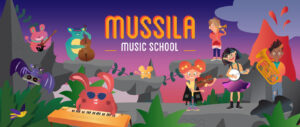
So if you’ve made it to this part of the blog, you’re no doubt thinking, ‘I’m sold, how do I get my kid into some kind of music, so they become the CEO/Artistic Director/Brain Surgeon they’re destined to be?’
There are loads of ways to introduce a musical education to your child; you could enrol them in lessons, ask them if there’s an instrument they want to learn or teach them yourself. There’s another super-easy way to get some musicality action going that combines technology and music.
Mussila is an app for kids that helps them to learn music through play. This award-winning application lets kids explore the world of musical education, from instruments to theory to even composition and remixing.
Mussila provides hours and hours of games, challenges and carefully crafted lessons created by musical experts to enhance your child’s musical education with a healthy dose of fun.
The best part about Mussila is that it’s completely designed to be used by the child without the need for help from a parent; all you need is a device to launch the app, and away you go.
Check out the Mussila app to learn more about how it can introduce some musical input to help your child get the most out of their formative years.
Alternatively, Mussila is also available directly for schools. With over 1500 musical challenges across 35 languages, this has been a fantastic addition to the musical syllabus of many schools around the world.
Conclusion
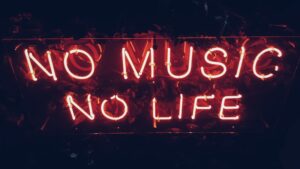
Whether your child goes on to learn the guitar or piano, to simply dip a toe in the musical waters and try something new, or even just try to develop their inner Ed Sheeran, you can be sure they will take a lot more from music than what simply meets the eye during their development.
Music is an intrinsic part of life. It lifts us up when we’re down, it makes memories, it soundtracks our experience. Music is also a way to unlock hidden potential in our kids and by giving them access to a musical education, you’ve given them an incredible leg up in life.








